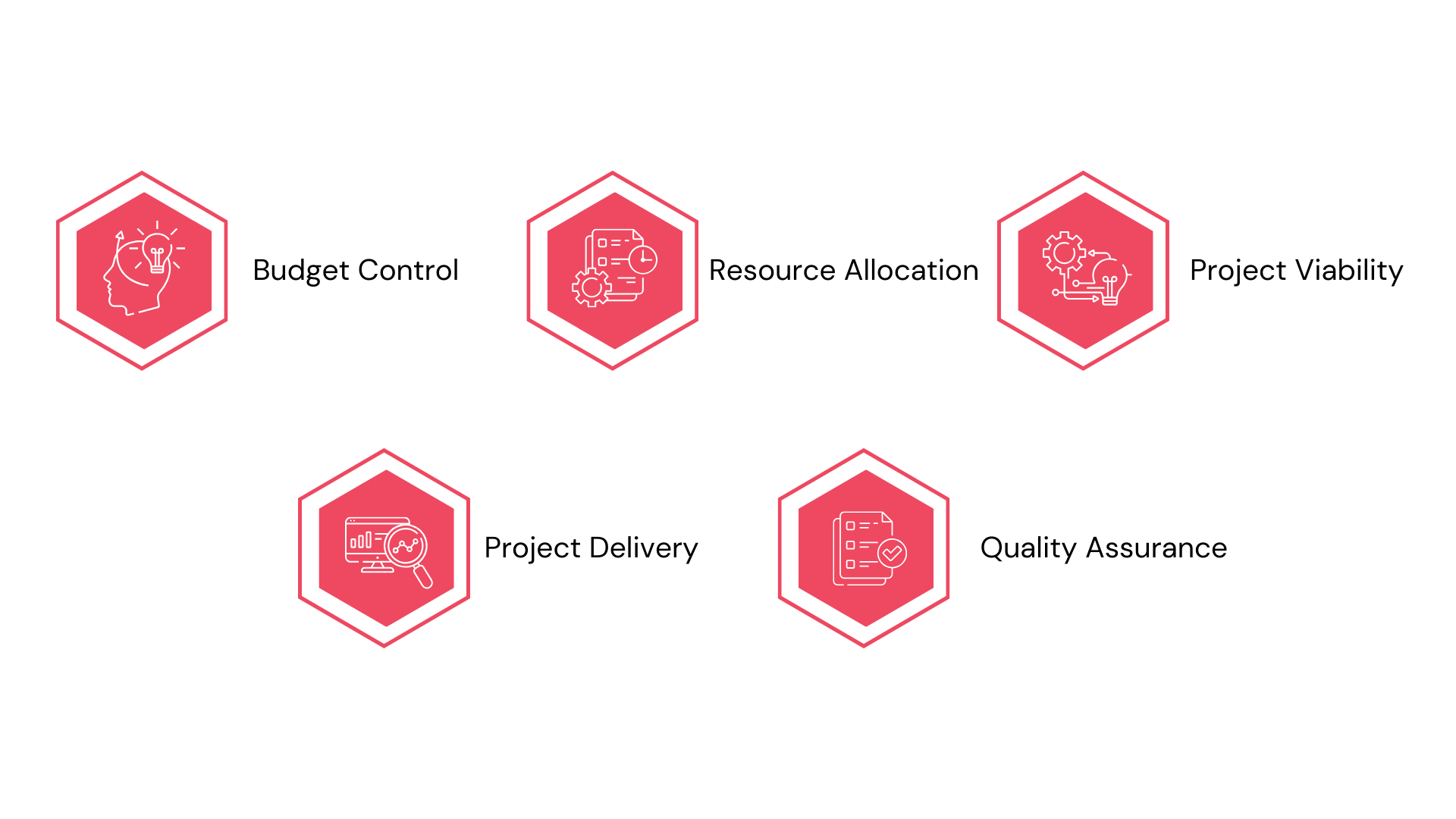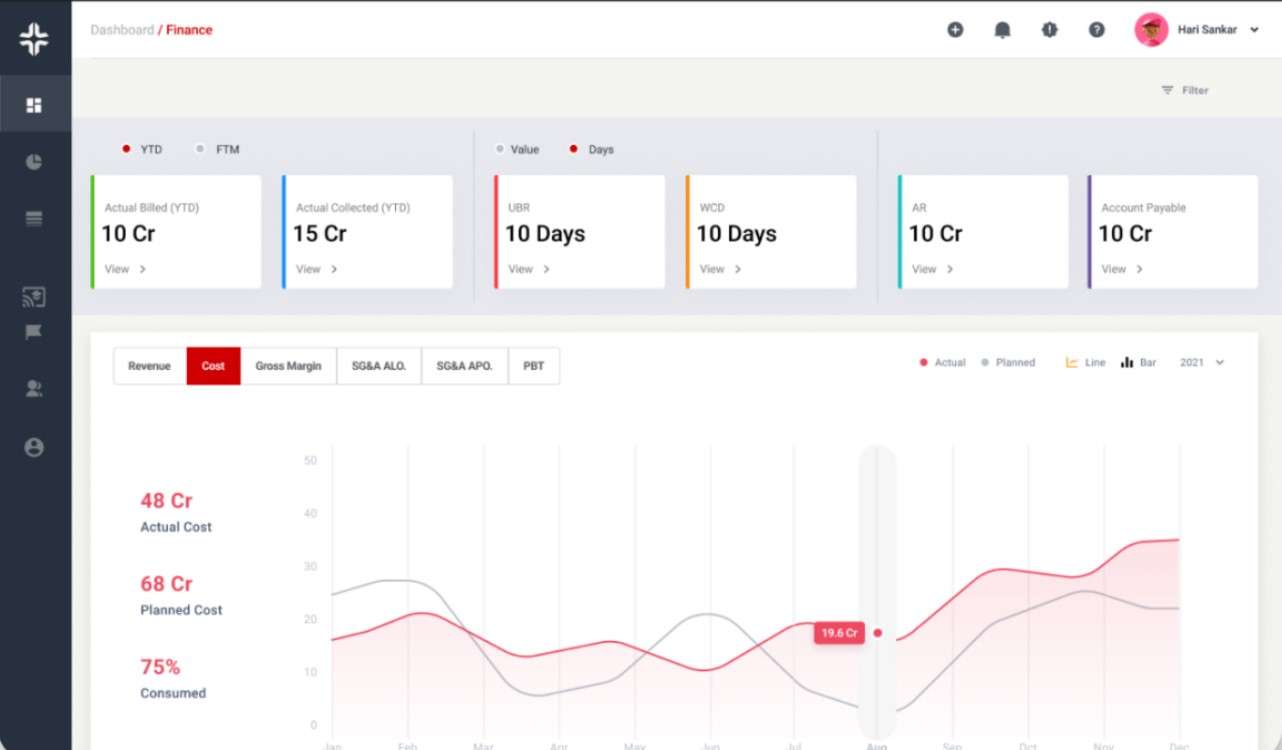Home » PSApedia
Cost Overruns
Control Costs and Prevent Cost Overruns. Learn Effective Strategies for Budget Management.

What Are Cost Overruns?
Cost overruns, sometimes known as budget overruns, refer to the unexpected and unplanned expenses that exceed the initially approved budget in projects or ventures. These unexpected costs can arise due to various factors, from resource mismanagement to unforeseen complications.
Cost overruns are extra costs that happen in a project or activity, going beyond the planned or estimated amount. They arise from factors such as inaccurate estimates, unforeseen challenges, inflation, or scope changes. Managing and avoiding cost overruns is crucial for financial planning and project success.
The Impact of Cost Overruns on Projects
Cost overruns can seriously hamper a project’s progression. Financial instability, strained relationships with stakeholders, and potential delays can arise from these unplanned expenditures. It’s crucial to understand financial management in professional services strategies to mitigate such challenges effectively.
The impact of cost overruns on projects can be detrimental. Beyond financial burdens, they can lead to project delays, strain stakeholder relationships, and tarnish the reputation of the entities involved. Overruns can also compromise the quality of deliverables if funds are redirected from essential components. In the long run, consistent overruns can jeopardize the viability and success of projects.
Factors Contributing to Cost Overruns
Several factors can contribute to cost overruns:
- Mismanagement of Resources: Ineffective resource management can lead to wastage and increased costs.
- Inaccurate Estimations: Without a robust project management software, it’s easy to miscalculate requirements, leading to budget discrepancies.
- Unforeseen Complications: Unexpected challenges or obstacles that weren’t accounted for during the planning phase.
- Scope Creep: Expanding the project’s scope without adjusting the budget or timeline accordingly.
Calculating Cost Overruns
Formula:
Cost Overrun = Actual Cost – Estimated Cost
Example:
If a project was estimated to cost $10,000 but ended up costing $12,000, the cost overrun would be:
$12,000 – $10,000 = $2,000
The Importance of Managing Cost Overruns
Professional Services Automation (PSA) make businesses in managing projects efficiently. By leveraging data analytics for resource management in PSA, businesses can forecast costs better and prepare for potential overruns. The ultimate guide on what PSA software is provides an in-depth understanding of its utility.
While cost overruns refer to unexpected costs beyond the initial budget, budgeted costs are the anticipated expenditures determined during the planning phase. Ensuring a project stays within its budgeted costs involves streamlining project planning with software tools and regular monitoring.

The Importance of Managing Cost Overruns
Cost Overruns vs Budgeted Costs
Cost overruns occur when the actual expenses of a project exceed the projected budget. They can arise from factors such as poor project estimation, unexpected complications, or inadequate resource management.
| Parameter | Overruns | Budgeted Costs |
|---|---|---|
| Definition | Excess of actual cost over the estimated or budgeted cost. | An estimate of the expected costs for a particular project or activity. |
| Nature | Reactive – Represents a deviation from the planned costs. | Proactive – Established before the project or activity starts. |
| Purpose | Used to measure the efficiency of a project or activity and determine areas of improvement. | Used for planning and allocating resources for a project or activity. |
| Implication | If positive, it implies costs were higher than expected. Negative overruns mean costs were lower than expected. | Serves as a benchmark or target. Does not indicate performance but provides a reference point. |
| Causes | Can be due to unforeseen challenges, poor estimation, change in scope, etc. | Based on historical data, expert judgment, market conditions, etc. |
| Impact | Can affect profitability, project timelines, and stakeholder confidence. | Helps in setting expectations, securing funding, and monitoring project performance. |
Strategies to Avoid Cost Overruns
KEBS offers several strategies and tools to mitigate cost overruns:
- Effective Resource Management: With tools like employee 360, managers can gain holistic insights into resource allocation and optimization.
- Forecasting with Gantt Charts: Utilizing Gantt charts to visualize project timelines and potential bottlenecks.
- Efficient Time Tracking: KEBS offers timesheet software to monitor work and ensure projects stay on track.
- Finance Management Tools: A closer look at finance management software by KEBS reveals capabilities that help anticipate and manage potential cost overruns.

KEBS Finance Management
Ready to mitigate cost overruns with KEBS? Contact us today or book a demo to explore how KEBS can streamline your project management needs!



